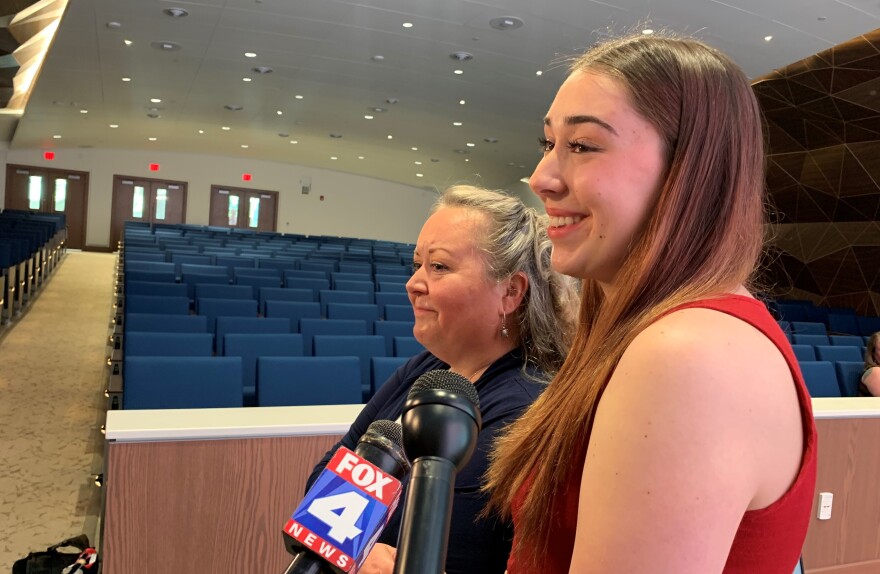Heather Scruton has worked as a nurse at Children’s Mercy Hospital for more than 30 years. Even working in health care, she said it was hard to access mental health care services for her son Adam.
Around 7th grade, Adam, who had ADHD, started struggling with depression and anxiety. Mental health issues plagued him for years, through his time at Olathe Northwest High School.
Heather said it was difficult to find a provider — and even when they did find one, it was often not the right fit. The process was overwhelming for Adam and the family.
On August 22, 2021, Adam died by suicide.
Children’s Mercy Hospital announced Thursday that it's putting $150 million into a new initiative to treat children like Adam, who struggle with their mental health. The Illuminate project will improve early intervention, add new specialty services and expand inpatient hospital care.
“The kids may not be feeling like they're heard,” Heather said. “What we're saying here at Children's Mercy is that you are heard and we're here to help. We're gonna make sure that that help is here for you when you need it.”
Heather and her daughter Alison joined hospital executives and other families impacted by pediatric mental health issues or suicide to announce the initiative. People throughout the packed auditorium also stood to share how they feel the impact of a growing mental health crisis.
According to Children’s Mercy, about 15 million children need mental health services but only between 30% and 50% receive that care. In Kansas City, that number is even higher — 40% to 50% go untreated.
Using a $50 million gift from the Sunderland Foundation and a $70 million combination of state and private funding, Children’s Mercy is focusing on four areas during its five-year plan: Intervening early, increasing specialty services, investing in research and innovation and expanding inpatient hospital care.
The plan will help children with ADHD, autism, depression, anxiety and eating disorders.
“When we think about a home that's suffering, that's confused about what to do, and we make it harder for them, not easier, we just can't do that,” said Sarah Soden, director of developmental and behavioral health for Children’s Mercy. “We have to be there for those families so that when they're confused and they're trying to figure out what to do, they know where to turn.”
In all, Soden expects the project to help more than 80,000 kids across the metro.
She said the burgeoning children's mental health crisis can be credited to a variety of factors — like social media’s growing importance and high rates of violence — but the crisis level was especially impacted by the pandemic. Whatever the cause, the need for a more all-encompassing approach is at an all-time high, Soden said.
Children’s Mercy CEO Paul Kempinski said more than 3,000 children arrived in the hospital’s emergency department during a mental health crisis.
But Kempinski estimates there are only about
166 inpatient psychiatric beds for children in the entire region.
“Over the next five years, we will provide enhanced access to evidence-based screening, diagnosis and treatment while expanding the collective network of services,” Kempinski said.
If you or someone you know is struggling with thoughts of suicide, you can call the Suicide and Crisis Lifeline at 988.




